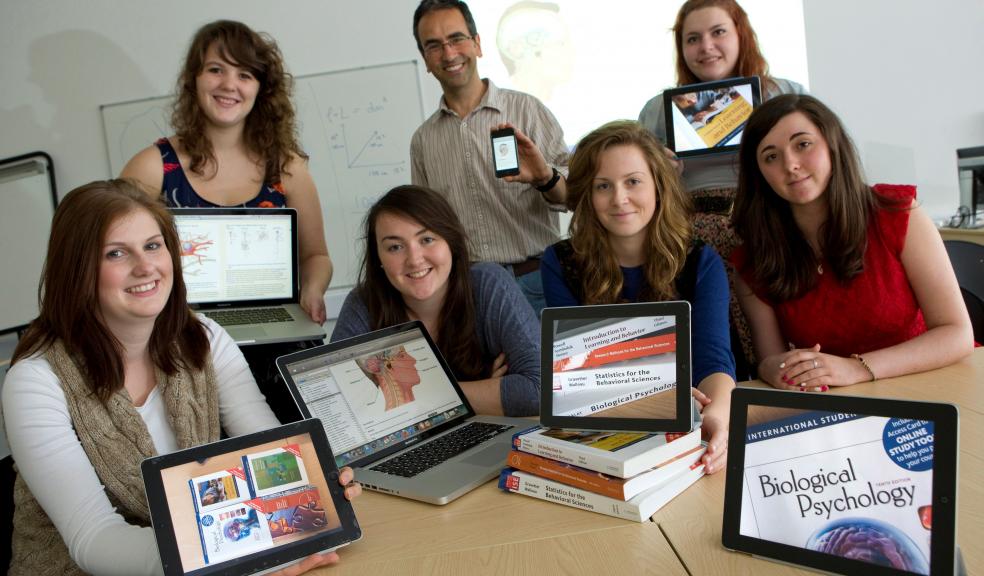
Innovative e-book earns University national award
An innovative project that delivers free copies of digital course books to the smartphones, tablets and laptops of students at Plymouth University has won a prestigious national award.
The ‘e-books' programme is designed to ensure that all students have access to the best supporting literature on their degree, and enables them to annotate their digital texts and share notes with their teachers and each other.
At the inaugural Guardian University Awards in London, last night, it was awarded the Teaching Excellence honour, beating entries from the University of Bristol and the London School of Economics into second place.
Professor Julian Beer, Pro Vice-Chancellor for Regional Enterprise, accepted the award from the Higher Education Academy, which had presided over the category containing the country’s most acclaimed teaching innovations.
Plymouth was also short-listed among a final three in the Contribution to Local Community category, with its annual Community Research Awards programme in which academics work with voluntary organisations and charities on specific projects, opportunities or challenges.
Professor Wendy Purcell, Vice-Chancellor of Plymouth University, said: “More than 250 higher education institutions entered the Guardian University Awards across ten different categories. So, to win the Teaching Excellence award and be shortlisted in the Community category too is a great achievement for our staff and students.
“Plymouth University’s teaching excellence is distinctive in the sector. This award reflects how we are using technology to create an ‘edgeless university’ so that our students can access our learning resources wherever they are, as we reach out into communities to deliver higher education at home and overseas.
“The student experience is at the heart of what we do and is underpinned by world-class research and award-winning teaching excellence and we are delighted with this national award.”
The ebooks idea was launched in September 2011 as a pilot project for first-year students in the School of Psychology, and was the first of its kind in the UK. Each student was issued with a full set of 23 books, valued at £900, which could be accessed on-or-offline, and covered their reading for all core first and second-year lectures.
In 2012 the programme was extended, with the University working with seven major publishers across five subject areas in science and technology. It’s now looking at broadening that range even further.
Among the innovative features of the e-books project is that students have the option of subscribing to a notes facility, where they’ll be able to annotate, share, and view comments in the book, including those of their lecturers.
Professor Simon Handley, Dean of the Faculty of Science and Technology, said: “The aim of ebooks is to enable every student to have access to the very best support materials wherever and whenever they want it, removing all practical and financial barriers. And we want to make these texts a dynamic part of their learning experience, a new approach to the ‘old school’ habit of reading for a degree.
“Even the best stocked library cannot have room for enough books to cover every student on every course at peak times. So with ebooks we overcome that problem and at the same time, free up library space for valuable supplementary texts and resources.”













